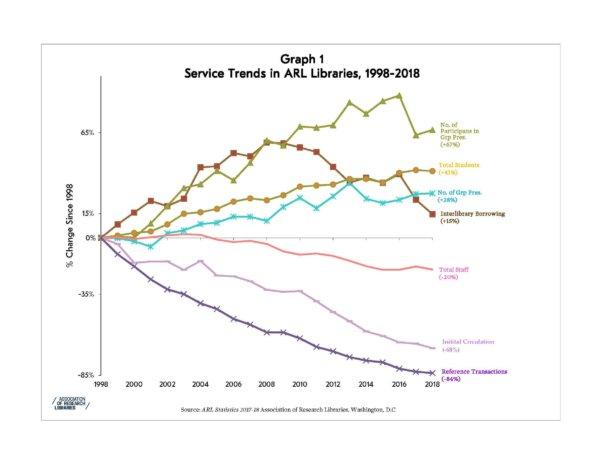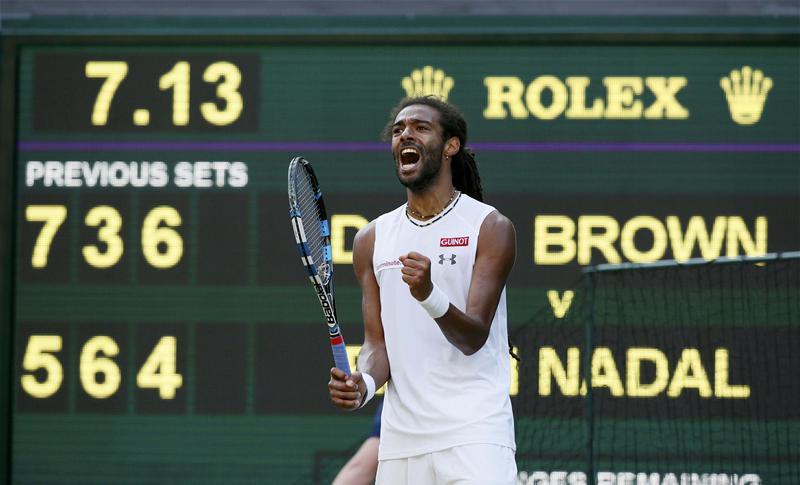In the electrifying arena of tennis, where titans clash and dreams are born with each serve, a curious dance unfolds between the underdog and the favorite. As crowds roar and hearts race, the narrative stretches beyond mere athletic prowess, delving into the intriguing dynamics of betting. Here, the odds reflect not just the players’ skills but also the hopes and aspirations of countless fans willing to wager on the unpredictable nature of sport. In this exploration of tennis betting, we unravel the compelling stories behind underdogs vying to upset the rankings and favorites aiming to fulfill their anticipated destinies. Join us as we dissect the strategies, psychology, and sheer thrill that accompany placing bets on the exhilarating rivalries in the world of tennis—where every match is a tale of its own, full of unexpected turns and hidden possibilities.
Table of Contents
- Understanding the Dynamics of Underdog and Favourite Betting in Tennis
- Analyzing Statistical Trends: When to Back the Underdog
- Evaluating Player Form and Surface Compatibility for Betting Decisions
- Strategies for Maximizing Returns in Underdog vs Favourite Matchups
- Q&A
- The Conclusion

Understanding the Dynamics of Underdog and Favourite Betting in Tennis
In the electrifying arena of tennis betting, the clash between underdogs and favourites adds a thrilling twist to each match. Underdogs, often perceived as the lesser competitor, can deliver unexpected results, catching seasoned bettors off guard. This unpredictability means that backing an underdog can lead to significant profits, especially when they outperform expectations. Common characteristics of successful underdogs include:
- Recent form: Appearing strong in preceding matches.
- Playing style: A unique approach that may challenge a favourite’s strengths.
- Head-to-head history: Previous matches where they’ve fared well against their opponent.
On the flip side, the favourites carry the weight of expectation, often offering lower odds that reflect their higher chances of winning. Bettors need to assess the factors that substantiate a favourite’s status, which often include:
- World ranking: Higher-ranked players generally have an edge.
- Experience: Veterans can navigate pressure situations more effectively.
- Surface compatibility: A player’s adaptability to court surfaces influences their performance.
Understanding these dynamics allows bettors to not only make informed decisions, but also to embrace the nuances that tennis betting presents. By weighing the potential risks and rewards associated with each side, punters can strategize their bets more effectively.
For further insights, consider visiting betreward.com where you can discover tips and trends tailored for tennis betting enthusiasts.

Analyzing Statistical Trends: When to Back the Underdog
In the world of tennis betting, understanding statistical trends can provide crucial insights into when to take a leap of faith on an underdog. Analyzing historical matchups, player conditions, and performance on specific surfaces can unveil hidden opportunities. For example, consider the following factors when assessing the potential of an underdog:
- Head-to-Head Records: Review past encounters between players, as underdogs may have performed surprisingly well against favorites.
- Surface Suitability: Certain players excel on particular surfaces, so an underdog’s prowess on clay versus a favorite’s struggles can shape betting decisions.
- Recent Form: Analyze the last few matches for both players; a hot streak for the underdog may indicate a shift in momentum.
- Injury Reports: Monitor player conditions; a favorite battling an injury can create an advantageous scenario for the underdog.
To further simplify your analysis, consider creating a quick overview of relevant statistics in a table format:
| Player | Win Percentage | Last 5 Matches | Surface Wins |
|---|---|---|---|
| Underdog A | 45% | 3 Wins, 2 Losses | 5 (Clay) |
| Favorite B | 75% | 4 Wins, 1 Loss | 10 (Hard) |
By leveraging these insights and conducting thorough research, bettors can better assess the risks and rewards associated with backing an underdog. Utilizing resources like betreward.com can enhance overall strategy, making the betting experience more informed and potentially lucrative.

Evaluating Player Form and Surface Compatibility for Betting Decisions
When it comes to placing bets on tennis matches, understanding player form and their compatibility with specific surfaces is crucial. Various factors influence a player’s current performance, including recent match outcomes, injury status, and head-to-head records. Examining these elements can provide valuable insights into whether a player is likely to reclaim their form or continue underperforming. Key indicators to consider include:
- Current Win/Loss Record – Analyzing the last five to ten matches can reveal trends in performance.
- Surface-Specific Performance – Some players excel on clay while others thrive on hard courts; knowing this can drastically alter betting probabilities.
- Fatigue and Travel – A rigorous schedule may contribute to lower energy levels, impacting performance.
Moreover, diving into player statistics on various surfaces can shed light on potential outcomes of matches. For instance, reviewing a player’s winning percentage on grass compared to their performance on cement can highlight discontinuities that might not be immediately obvious. Below is a simple table summarizing key player stats that influence betting decisions:
| Player | Grass Win % | Clay Win % | Hard Court Win % |
|---|---|---|---|
| Player A | 75% | 60% | 65% |
| Player B | 55% | 70% | 80% |
| Player C | 40% | 75% | 50% |
Using resources such as betreward.com can enhance your analysis further by providing real-time data and insights on player conditions and match dynamics.

Strategies for Maximizing Returns in Underdog vs Favourite Matchups
When it comes to betting on underdog versus favourite matchups in tennis, understanding the dynamics of both players can unveil profitable opportunities. Key strategies include assessing player form, head-to-head records, and court conditions. Some effective tactics are:
- Analyze Recent Performance: Look at the players’ last few matches to gauge form. An underdog on a winning streak can be a high-value bet.
- Surface Matters: Certain players excel on specific surfaces. For instance, a clay-court specialist may have an advantage over a favourite known for hard court success.
- Examine Odds Movement: Track fluctuations in the betting odds. Significant changes might indicate insider knowledge regarding player conditions or injury updates.
Additionally, consider employing a risk management approach to your betting strategy. Diversifying your bets can mitigate losses while maximizing potential returns on underdogs. For instance, setting a bankroll allocation specifically for underdogs can be beneficial. Implement features such as:
| Strategy | Description |
|---|---|
| Value Betting | Identify matches where the odds significantly undervalue the underdog’s chances. |
| In-Play Betting | Watch the match live; place bets based on momentum shifts and player performance. |
| Statistical Analysis | Utilize statistical models to predict closer match outcomes, revealing potential underdog value. |
For more insights on betting strategies, you can visit betreward.com.
Q&A
Q&A: Understanding Tennis Underdog vs. Favourite Betting
Q1: What is the concept of underdog and favourite in tennis betting?
A: In tennis, the “favourite” refers to the player expected to win the match, typically based on their ranking, past performance, and general perception of skill. Conversely, the “underdog” is the player considered less likely to win, often resulting in higher potential returns for those betting on them. Understanding this dynamic is essential for making informed betting decisions.
Q2: How does the underdog-favourite dynamic influence betting odds?
A: Betting odds reflect the probability of a player winning based on various factors, including performance metrics and public sentiment. Underdogs generally have longer odds, offering higher payouts if they win. For instance, if a top seed faces a relatively unheralded player, the odds will skew heavily toward the favourite, creating an appealing opportunity for those willing to bet on the underdog.
Q3: Are there particular tournaments where underdogs tend to perform better?
A: Yes, certain tournaments, particularly Grand Slams, are known for their unpredictability, leading to surprising upsets. The best-of-five-set format in men’s singles, for example, provides underdogs a greater chance to turn the tide over multiple sets. Additionally, matches played on less-favorable surfaces for favourites can also level the playing field, making outcomes less predictable.
Q4: What strategies can bettors employ when wagering on underdogs?
A: Successful betting on underdogs often requires diligent research. Bettors should analyze head-to-head statistics, surface preferences, recent form, and even psychological factors like pressure. Look for opportunities where the odds may not accurately reflect a player’s chances—perhaps due to an overlooked injury or an underdog’s strong performance against top players in the past.
Q5: Is it wise to consistently bet on underdogs?
A: While betting on underdogs can yield substantial rewards, it’s essential to maintain a balanced approach. Consistently betting on underdogs without a solid strategy can lead to losses, as these players are often underdogs for a reason. Diversifying your bets and combining underdog bets with favourites can help manage risk while still capitalizing on potential rewards.
Q6: How can emotional biases affect betting choices between underdogs and favourites?
A: Emotional biases can significantly sway betting decisions. Bettors may be tempted to support their favorite players for sentimental reasons, overlooking statistical evidence that suggests a higher probability of loss. It’s crucial to stay objective, relying on data rather than personal allegiance, to make sound betting choices.
Q7: What role does market sentiment play in underdog vs. favourite betting?
A: Market sentiment can heavily influence betting odds. If a particular underdog garners significant public support, odds may shift to reflect that sentiment, creating potential value for those who research beyond public opinion. Keeping an eye on line movement and understanding when the market might misjudge a player’s chances can provide an edge in betting.
Q8: What are the key takeaways for bettors interested in the underdog-favourite dynamic?
A: The underdog-favourite dynamic is a thrilling element of tennis betting, filled with potential rewards and pitfalls. Key takeaways include researching player statistics, understanding the impact of tournaments and surfaces, maintaining emotional detachment, and evaluating market sentiments. By employing sound strategies and remaining informed, bettors can navigate this dynamic effectively and enhance their betting experience.
The Conclusion
In the exhilarating arena of tennis, where the underdog dares to dream and the favorite seeks to maintain their throne, the betting landscape weaves a fascinating narrative of risk and reward. As audiences cheer and analysts speculate, the dynamics of underdog and favorite unfold like the intricate strokes of a well-played match. Whether you’re drawn to the thrill of a surprise victory or the comfort of a predictable win, understanding the subtleties of this betting strategy can elevate your engagement with the sport.
As the season progresses and the courts witness countless battles, remember that every player has a story, and every match holds the potential for unforeseen outcomes. Betting on tennis isn’t just about statistics and odds; it’s about embracing the drama, the passion, and the unpredictable nature of competition. So, whether you place your chips on the reigning champion or a hopeful challenger, may your bets be as strategic as your favorite player’s serve. Ultimately, in the world of tennis betting, every point has the power to change the game—and your fortune.








One Response